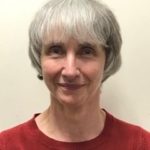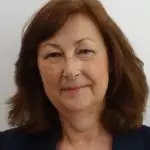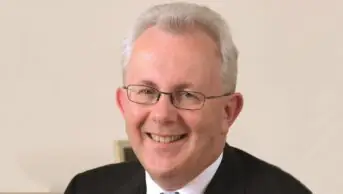
Shutterstock.com
Voting in the 2021 RPS national pharmacy board elections opens on 29 April 2021 and closes on 13 May 2021. Result are due on or around 14 May 2021.
Here, to get to know this year’s candidates and find out more about what they stand for, The Pharmaceutical Journal asked for their views on how to maximise the Society’s membership*.
*Of the 44 candidates standing for election, 39 provided responses.
English Pharmacy Board election candidates
Welsh Pharmacy Board election candidates
Scottish Pharmacy Board election candidates
England

Adebayo (BeeFive) Adegbite, community pharmacist
I was really happy to be asked this question because I have already started expanding the membership of the RPS, even before voting for the RPS elections have started! By networking across various pharmacy social media channels, I am actively involved with and I have and will continue to extol the virtues of RPS membership, as well as posting the joining link for potential RPS members.
I have networked extensively with provisional and preregistration pharmacists to promote the benefits of RPS educational resources, enabling them to pass the registration assessment and make a seamless upgrade from ‘Associate’ to ‘Full’ RPS membership on qualification. I will conduct a survey among members and non-members with a view to reducing the monthly direct debit membership fee £9.99, which a large number of non-members have informed me is a figure that will encourage them to join.

Shahzad Ahmad, community pharmacist
Throughout my travels as a former inspector for the General Pharmaceutical Council, I was privileged enough to speak with many colleagues in the profession. The topic of RPS membership came up frequently as there is a desperate need for professional advice and guidance in whichever role you work in. There is a wide variety of reasons that people provide for not joining the RPS. It is important that the RPS seeks to understand the barriers to membership and starts to strategically address them. Without doubt, there is a perceived lack of value associated with RPS membership. More needs to be done to increase visibility and access to the supportive tools and initiatives that the RPS provides. In addition, there needs to be a renewed effort into understanding the needs of members and the profession.

Claire Anderson, academic
- Work to understand pharmacists’ needs through various networks and then work with RPS to make sure that it delivers what is important to members;
- Wherever medicines are discussed the RPS needs to be at the table;
- Continue agile responses and information curation as with COVID-19 hub;
- Retain early careers pharmacists, supporting career development and timely access to relevant information;
- Promote member connections via the new digital communities of practice;
- Further develop and promote the excellent mentoring platform;
- Provide assessment and curricular for all postgraduate critical progression points at a preferential cost for members;
- Consider new, wider membership categories and support for everyone connected with medicines including other health care professionals;
- Ensure non-members understand RPS roles and achievements as well as membership benefits and shout even more about advocacy;
- Continue to advocate for well-being for pharmacists and their teams;
- Explore working with other organisations to offer joint membership and joint events.

Jay Badenhorst, community pharmacist
Strategically, I will contribute to our membership strategy, which needs engagement of pharmacists in all pharmacy sectors. Further, we need to trend-analyse attrition to evaluate our perceived membership value against the beliefs of the members themselves. Personally, I will look to enhance our membership offering from the early years at university, establishing a foundation, that could lead to more permanent membership. Having an appropriate value-based membership offering from early on, is vital to create the sense of belonging to a caring, diverse and understanding RPS.
As a community pharmacist, I will champion RPS membership by being proactive and demonstrate membership value and benefit to attract new members, retain existing members and convert non-members. There appears to be an imbalance of representation on the board from some sectors. Therefore, I will work to enhance representation from the industry, academia, science and research sectors through my existing local, regional and national networks.

Nabila Chaudhri, health technology and primary care pharmacist
An increase in engagement with RPS members will inevitably help to increase membership through word of mouth. As part of increased engagement I would focus on: listening; recognition; and being approachable. Engagement will increase simply by actively listening; this can be done by being transparent in making decisions. The membership could be doubled by simply asking each member to invite a friend; they would do this if they were engaged and bought into the leadership of the RPS. Engagement with non-RPS members is also important. It would be insightful to understand why some pharmacists choose not to take up membership with the RPS. The RPS at the moment is community pharmacy centred. This is a very important part of the pharmacy profession; however, there is an immense workforce in secondary care and other sectors. Providing more diverse representation will help increase membership.

Howard Duff, primary care and community pharmacist
I will act as both a hunter and a farmer on behalf of the RPS, getting out there to capture new members and sewing seeds that will bear fruit in the future. Hunting will provide members with help that will impact their practice, this means continuing to address the issues raised by COVID-19, seizing the opportunities to promote our work, giving advice and clear evidenced messages about public health, vaccination effectiveness and managing the disease itself. I will also warn off others who might stray onto our territory seeking our members.
Being a royal college will also require the earth to be tilled, fertilised and seeds sewn and I will work on longer term projects as future crops. In practice, this means fostering relationships with key people and developing strong authoritative policy that commands respect. This will give pharmacists something that they will want to join and contribute to.

Ciara Marie Duffy, hospital and industry pharmacist
By listening to members about how we can improve the RPS and ensuring membership is value for money, and by listening to non-members on what would encourage them to support and join the RPS. I will work at facilitating change to ensure we move forward with these issues and use my position in the English Pharmacy Board to liaise with the GPhC to arrange data collection.
I will perform gap analysis on membership strategies of other professional bodies and analyse the differences to understand what changes we could make to have greatest effect. I will explore feasibility of widening the scope to incorporate other pharmacy professionals such as technicians or those involved in innovative medicine delivery. I will investigate feasibility of including indemnity insurance with membership, providing reduced fees for those on lower incomes, discounts for same household membership and a reduced rate for current members who refer non-members to sign up.

Min Na Eii, hospital pharmacist
My initial engagement with the RPS was through promotions via local practice forums and I would like to see more active local engagements again. Pharmacies and individuals’ interests or issues vary regionally, hosting local events bring together professionals from all sectors to discuss solutions and actions. The RPS can use this opportunity to collate feedback from both members and non-members making them feel like they belong and are listened to. The quality interaction can result in recruitment of those who see value in membership and promotion to their own networks. RPS roadshows at universities and collaboration with non-RPS pharmacy events will also achieve this.
If I may boldly suggest, given the number brilliant candidates running in the RPS elections this year, those not elected on to the board should be made ambassadors to champion the society. As the saying goes, members will come for the content, but they will stay for the community.

Mary Evans, hospital pharmacist
A discussion I initiated on Twitter elicited comments from pharmacists across all areas of practice on why they didn’t value RPS membership. Reasons ranged from not knowing what was available, getting greater value from multiprofessional groups aligned to their clinical practice, to not being able to justify the cost of membership.
I would actively lobby for a robust professional stakeholder engagement exercise open to all pharmacists aiming to promote awareness of the existing benefits, identify what pharmacists would actively value from membership, together with a feasibility evaluation of different categories of membership, allowing the creation of membership offers which were seen as valuable to pharmacists, and would allow pharmacists to choose membership packages that suited their interests or pocket. But, above all, there should be an ongoing programme to highlight and engender an enthusiasm for what the RPS can do for the profession and a willingness to work together to achieve that goal.

Thorrun Govind, community pharmacist
The RPS must survey pharmacists regularly to ensure that the organisation is aligned to the needs of members, pharmacists and pharmacy. I actively engage with members and non-members alike to increase awareness of what the RPS offers. Most recently I have contacted more than 100 people, including members and non-members, to alert them to the mentoring and mentee opportunities available. Many were not aware — there is much work to be done on raising awareness of what the society offers. The role of ‘RPS Locals’ will become more important as me seek to connect with each other more as the pandemic comes to an end. The organisation must ensure it is aware of the day-to-day pressures pharmacists are under. That’s why the advisory boards will become even more important.

Brendon Jiang, primary care pharmacist
I will continue what I have been doing: support and guide the work of the society; deliver webinars, training, interviews and articles; seek feedback and actively promote the great work that the society continues to do for members and the profession as a whole. I look forward to interacting with members again in person, post COVID-19. The pandemic has forced us to adopt new technologies and ways of working which enrich our reach, engagement and transparency and must not be abandoned. But there is no substitute for person-to-person engagement.
Membership is driven by many things; chiefly a perception of value and belonging. RPS represents immense value for money compared to other royal colleges. Sadly, many pharmacists don’t appreciate this fact. Fostering a sense of belonging requires members to actively engage and participate. All membership organisations face this challenge in today’s demanding world but there are exciting plans ahead.

Alisdair Jones, general practice pharmacist
The RPS needs to better demonstrate to grassroots pharmacists that it is working on their behalf and developing the profession. I propose a closer working relationship with our trade union, among others, that will extend our influence and translate into better outcomes for pharmacists, and encourage more people to become members. I think this will enable England in particular to start catching up with our colleagues in Wales and Scotland in terms of developing the pharmacist role, particularly in community.
We also need to expand our direct offering so that it better meets the needs of pharmacists. Expanding e-library access to include core texts such as Martindale and Stockley’s would assist many in community and general practice, as well as an expansion of training and development opportunities including prescribing support and credentialing for advanced clinical practice.

Michael Maguire, local professional network chair with a background in community pharmacy
I would work to fundamentally establish within all levels of the RPS that membership is a critical indicator of performance. Declining membership should be a red flag for prioritising urgent action. I would pro-actively listen to the membership to understand what they value most, and crucially, pro-actively seek to listen to non-members to understand what would inspire them to join.
In the future, the RPS will be the organisation that grassroots pharmacists look up to, feel part of, and feel listened to. In turn, the RPS will have greater strength of mandate to really lead the whole profession of pharmacy. There will be an annual increase in membership, because the RPS is more relevant, transparent, and effective for its members’ needs. I would establish the gap between our current status and my vision above, and initiate the steps required to close that gap and make this vision a reality.

Sherifat Muhammad Kamal, locum in community, hospital, GP Practice and Primary Care Networks
Member’s quantity and quality are vital to the organisational development and its goals. By building on existing strategies while working with the board to improve and prioritise members views like discounting tickets at events, giving incentives and allowing member participation with view to increase membership.
Another point I will also work on is the provision of accessible platform for professional and personal development, thus improving membership. Moreover, I will also work with the board in making the membership of the association easy, in terms of fees, entry requirement, member-focused activities, getting feedback to inform and improve practice.
Conclusively I will also work with the board to ensure we have an accessible scheme for members voice, for feedback from current members, and thus making them happy, including an avenue where members and non-members can meet, this will create value to the membership.

Ojali Negedu, primary care network, integrated urgent care and academic pharmacist
I will work to engage with various pharmacy organisations and unions to understand how best the RPS can support pharmacy professionals in different sectors. Collaborative working is key to ensuring that we, the RPS, truly reflects the whole profession and that every industry sees active representation. I think that this will increase RPS membership. I also believe that the opportunity to complete an exit survey for those who choose not to renew their membership is essential to gain feedback and implement changes.
As elected representatives, it incumbent on us to be visible. I believe that visibility and engagement with RPS members and non-members will build an understanding of the benefits in being a member, explore how the RPS can support the profession and increase trust in leadership. Through active listening and engagement with our pharmacy colleagues, we can be responsive, increase accountability and transparency of the leadership to our profession.

Erutase Oputu, hospital pharmacist
I believe any strategy to address membership should take a multipronged approach. Focus should encompass both reaching new members and retaining existing members. Concerted efforts using a range of methods including surveys and focus groups to understand what value for money means to members. What can we do each year that responds to member needs?
We need to foster a sense of ‘belonging’ – working with pharmacy schools and BPSA to listen and engage early on. Agility and adaptability is key. Members need to trust that we respond swiftly, proactive and are able to foresee the challenges that pharmacists face. Board members must be seen to be vocal and credible. If elected I would push for the RPS to be at the forefront of advocating and lobbying in support at the highest levels for the welfare of pharmacists and for the benefit of patients.

Reece Samani, digital pharmacy
I am passionate about increasing membership, especially among younger pharmacists. Many colleagues I graduated alongside are not members, which is a shame. I always try to convince them of the benefits of the RPS’s work. But I believe the RPS could communicate its strengths and successes more effectively with pharmacists aged under 35 years.
I will push for a new digital marketing strategy. We must relay information that persuades people to join. My generation is constantly on social media, which presents an opportunity to connect to non-members. When the RPS makes progress on any issue, it should be publicised on social channels in digestible, shareable form. Updates from board meetings and insight into the decision-making process could also be published on the RPS blog and social media. Young pharmacists must understand the benefits of membership go beyond the MEP and access to The Pharmaceutical Journal. Effective digital communication can make that happen.

Sarah Sawieres, specialist pharmacist in liver intensive care and private patients
I believe there is a discrepancy between what the RPS is perceived to provide and the work they actually do. I hope to work towards closing this gap by promoting the current work of the RPS in moulding the pharmacy profession. I would work to highlight the brilliant work the RPS does in presenting our profession to other governing bodies and healthcare professionals. It is important to showcase the work the RPS has done for pharmacist’s education and training such as the webinars set up for those working in primary and secondary care during the pandemic.
I feel passionate about promoting the platforms the RPS has created for pharmacists in all sectors to come together and discuss their own work or share their experiences, which I believe enhances the sense of community and support integrated care systems.

Heelen Rashmikant Shah, community pharmacist
As in a business model, growth needs to be shown for sustainability. This means retaining and growing the membership while also addressing the very needs of our current members. Frequent polling and surveys to generate feedback is essential to address areas that need further developing or new innovative ideas to claw back membership.
Listening to the voices of our profession for what they want us to stand for as a professional body is understated; a big talking point has been not retaining previous members. I believe targeting new revenue streams is the way forward in increasing membership. Developing a new platform incorporated within the RPS website/app could be the answer to jump starting growth. A space where pharmacists and pharmacy students can network, collaborate and support each other, bringing more traffic onto the website. This is an area that I am passionate to drive, and something I can help with.

Nader Siabi, community, primary care and academic pharmacist
My mission as an RPS board member will be to focus on protecting and championing members. I believe that there is far more that can be done in strengthening our position with the Department of Health – pharmacists are not being compensated for their work and facing cuts, despite being a core pillar of the community. Most recently, the Department of Health promised to provide payment to families who lost a doctor or nurse to COVID-19 in the line of duty. Pharmacists were only included after public outcry for their exclusion; it is oversights like this that require a change of tact going forward. I want to work to towards increased dialogue and coordination between the National Pharmacy Association, Pharmaceutical Services Negotiating Committee, and RPS to make sure we’re able to negotiate from a stronger position. If pharmacists feel that the RPS can protect and elevate them, we can attract more members.

Alisha Sodhi, primary care pharmacist
People don’t buy what you do, they buy why you do it. I believe the RPS needs to communicate it’s ‘why’ in a powerful way, so that both members and non-members can clearly understand the benefits the RPS brings to our profession. I will do so through the use of publicity, social media, and my dynamic personality. I will start by gaining clarity on what pharmacists want from the RPS and build authentic connections with pharmacists in different backgrounds and sectors, so that we maintain inclusivity and diversity. From understanding our pharmacists, we can then focus on actions to serve them.
Whether it is to develop new initiatives such as establishing discounts for members, or going on air to educate the public on our profession, it will be with the sole intent of what our pharmacists want, not what we think they need.

Paul Summerfield, locum community pharmacist and visiting lecturer
The Beatles once sang “The best things in life are free.” Although I agree with the sentiment, it does not hold entirely true. There is a price to everything but at what cost? My vision for increasing the membership of the RPS is two-fold. The membership and prospective membership need to have confidence in the RPS and also confidence in the boards. I have already covered this in one of my letters. The second is to give value for money. With the second limb in mind, I would like to see a system where the membership fee is based upon the time spent on the GPhC register. This would be banded into bands of five years with a lower cost to begin with, e.g. £8 per month increasing to £20 per month. This price would be inclusive of all member benefits so that all members would have equal access.

Zena Uppal, hospital pharmacist and early careers training programme director
In order to increase RPS membership, I would use social media to deliver important messages on the benefits of being an RPS member; such as the importance of having a professional leadership body. I would also use this platform to post surveys, to ask about the barriers to joining the RPS. Having an understanding of the key barriers, will enable us to work through some of the issues to ensure RPS membership is accessible for all pharmacists.
Social media is an extremely powerful tool, particularly for millennials and generation Z — who are the new generation of pharmacists. Using this effectively would be one way of increasing RPS membership. Furthermore, in order to connect with the new generations of pharmacists at the earliest stage, I would strive to create partnerships with universities, in particular to work with their social media teams to help promote RPS membership early on.

Shirley Walker, community pharmacist
RECRUIT: The RPS needs to be seen as a must-join professional organisation, so much so that it is unheard of not to be a member. Both leaders and members must be positive about its benefits. Engagement must start with a strong presence in all the schools of pharmacy. Non-members need to see what they are missing.
RETAIN: The RPS needs regular feedback from members. It must adapt as pharmacy evolves, wrapping its arms around all sectors of pharmacy and all stages of members’ careers, roles and qualifications. This will keep people in the fold.
REJOIN: Non-members will need to see short and long-term benefits of membership. They should see that MRPharmS carries gravitas within healthcare circles. Relaunching the Faculty will show our dedication to professional development.
Wales

Helen Davies, primary care pharmacist
I’d favour a two-pronged approach:
1. Explore the reasons why some of the experienced pharmacists are not members. Make sure they are heard! Use that intelligence to initiate conversations and find ways to incentivise them to join, depending on the reason. If, for example, they feel their sector is not represented enough, we can reassure and endeavour to change that.
2. Approach this from the grassroots. If benefits in terms of multidisciplinary support and networking are evident from undergraduate days onwards, there’s no need to incentivise later down the line. Perhaps, in line with the initial education and training of pharmacists changes, linking more with professional bodies such as the Royal College of GPs and the Royal College of Physicians are good ways to promote networking and interprofessional development. Perhaps RPS can investigate the possibility of securing discount on stethoscopes and other equipment necessary to become an independent prescriber?

Malik Latif, locum community pharmacist
Locum pharmacists in general tend to shy away from engagement with the society, therefore, there is an opportunity to provide a voice for them and to enhance their engagement, which may attract them to become members. Also, explaining the benefits of the society to them as they are mostly unaware of what support and perks the RPS has to offer.
Another method in which membership can be increased is by targeting the newly registered pharmacists, especially the ones that may take the locum route (as I believe there is a high drop-off rate here) after qualification and explaining to them the importance of the RPS.
I can use my role to engage with these pharmacists and make them aware of the platform that they will be exposed to along with other benefits if they become members.

Farzana Mohammed, primary care pharmacist
Working with RPS Wales, I want to achieve the following:
- Increase the profile of RPS Wales team by sharing successful collaborations — e.g. workstreams promoting BAME vaccine uptake and dispelling myths using webinars and blogs;
- Encourage pharmacists to join by promoting the benefits of membership. RPS has supported members through revalidation, provided resources and advice around coronavirus, raised awareness of the role of community pharmacy during pandemic and is creating a ‘Workforce Inclusion and Wellbeing Pledge’;
- Work with the local practice forum to deliver events to engage and listen to local members;
- Engage with early careers pharmacists to ensure their voice is heard and to promote membership at the beginning of their careers;
- Promote the RPS’s inclusion and diversity agenda, to increase ethnic minority representation and participation of minority groups in the RPS;
- Increase activity over social media — I’m not a Facebook champion but happy to tweet or chat ‘RPS Wales’ anytime.

Elanor Thomas, primary care pharmacist
I believe we need to do three main things:
- Raise the visibility of RPS. RPS has been perceived as passive or inactive. We need to be better at blowing our own trumpets. I have strong influencing skills and would be happy to turn my energy to promoting RPS and raising the profile our profession.
- Unite as a profession. A house divided against itself will not stand. Pharmacy’s tendency to divide itself into sectors and compete amongst ourselves is deleterious. We are all clinical, role guarding is unhelpful. My background means I understand many of the frustrations and would do all I can to unify the profession.
- Listen. Run a short engagement survey and workshop. Look at the RPS membership demographic and compare it to that of the profession. Are we all represented? If not, why not. We can’t find the solution until we identify the problem.

Cheryl Way, national pharmacy and medicines management lead
I will actively seek to meet with members and potential members, face to face where possible, to ask them what they would like from RPS membership. I will also let them know about the work the RPS does on their behalf and all the resources available to them as members. I believe there is a lack of awareness of the wide range of work done by the RPS, so will collate a summary of this for sharing. I will summarise what I learn, share this with the RPS and provide feedback on what we will do to support members. If there are areas not being covered, I will work with the RPS to address these.
Scotland

William (Iain) Bishop, pharmacist in NHS National Services Scotland
I believe that currently many pharmacy professionals in Scotland perceive that they would get nothing in return for they membership. Indeed I have often felt that way too. The Society has focused on mainstream roles, such as community and secondary care pharmacy. It has in recent years recognised the role of primary care pharmacists, but for this of us in more niche roles, there has never been a great offering from the RPS.
If elected to the Scottish Pharmacy Board, I would work with the director and board members, to develop an offering which is more inclusive to these niche roles such as pharmacist clinical informaticians, data scientists, prescribing advisers, etc. The RPS should be a professional body for the entire profession, not simply for those in more mainstream roles and we need to work collaboratively to make that happen.

Kathryn Booth, primary care pharmacist
The more remote areas of Scotland face a number of challenges regarding educational opportunities owing to distance and cost of travel to some face-to-face events. Additionally, the teams tend to be smaller and shift cover is not always possible to attend educational webinars. I believe this contributes to a lack of membership, yet the RPS is a fantastic network tool, educational platform and support for current and future legislative changes within pharmacy. My aim is to speak to these pharmacists, to understand their individual barriers and to represent them by feeding this back to the RPS. I want to help our remote pharmacy teams to develop their support network and review their educational needs, championing the RPS’s ability to understand the different challenges and varied roles of those pharmacists who feel alone out there, especially in rural Scotland.

Tamara Cairney, primary care and hospital practice pharmacist
This is a challenging matter with no single solution. Increasing membership requires a multi-factorial approach to guarantee that RPS membership satisfies the needs of our diverse profession. I appreciate the current activity of the RPS in learning from recently lapsed members, driving social media presence and collaborating with the BPSA to ensure the preregistration offer is attractive and valuable for our early career colleagues.
However, in order to recruit and retain membership after the first few years of qualification, the disconnect between pharmacy employers and the RPS needs to be addressed. I will work to ensure the RPS carves out an identity as the professional organisation that supports, inspires and promotes excellence in every role within the pharmacy profession by demonstrating how employers can integrate RPS development frameworks with workplace job roles and responsibilities. Therefore, encouraging employers to value membership of the RPS as a desirable employment characteristic.

Andrew Carruthers, hospital and locum community pharmacist
I would like to see an increase in membership engagement at RPS meetings as a strategy to increase the membership numbers of the RPS. I have been a keen advocate for members being able to attend and observe RPS Board meetings for quite some time. During the coronavirus pandemic, the Scottish Pharmacy Board have utilised technology to meet remotely, and the board have embraced this fully. In the future, I would like to see a blend of face-to-face and remote meetings of the board and invite members to observe and participate. By utilising technology more it will make it easier for members to participate and engage with the RPS. Increasing engagement will encourage membership renewal and drive up membership numbers.

Omolola (Lola) Dabiri, community and primary care pharmacist
An understanding of the benefits of being a member of RPS by a wider variety of pharmacists is of utmost importance to increase membership.
I would thus aim to increase clarity and visibility of the offers at hand as a member. I would propose getting RPS champions to work alongside RPS local representatives.
These champions should be from different sectors of pharmacy practice — academia, community, hospital, primary care, industry. These would more effectively engage with the pharmacists in their sectors to gather information about needs and wants and feed back to RPS for actioning. These champions would emphasise the advantages of being a member to their sector groups.
Also, if this is not done yet, a short exit survey should be given to anyone who leaves membership of RPS. This again would enable us gather information for direct improvement.
Perhaps this survey could be done retrospectively for those that have left contactable via general pharmacy forums.

Rizwan Din, primary care and community pharmacist
In what has been one of the most challenging times for pharmacy teams I believe the RPS should be catering for the needs of the pharmacists and technicians within the front line. I will look to engage with pharmacists and seek to understand what is important for them. Within community pharmacy and primary care workload can be drastically increased during times of stock shortages and manufacturing issues. The rate of both has been increasing to worrying levels recently and I feel this is where the RPS can provide a supportive function in providing advice and clear guidance. In intensely fast-paced environments it can be difficult to keep up with developments within the healthcare world. To enable our pharmacy teams, I will be championing the need for more interactive and engaging sector specific updates, events and peer support.

Lucy Dixon, primary care, secondary care and independent community pharmacist
I believe we should have more flexibility with subscriptions — various options for students, technicians, professionals, retirees and premises. I would advocate free trials and a variety of subscription lengths and levels to enable subscribers to find the perfect combination of value for money and access to our incredible array of resources and support. We need to have a lot more clarity and visibility regarding the benefits of membership. We should regularly ask members and non-members which services and support would most benefit them and endeavour to fulfil those wishes.

Farzana Haq, GP pharmacist
I am professionally active within Scotland and promote RPS through social media including the advantages of being a member. I have significant reach across sectors owing to various roles in a number of teams. For years, I have also been providing informal advice and support to my peers and early career pharmacists gaining necessary skills and experience to complete self-assessment competency framework to become an official RPS mentor. There can be a lack of diversity among national senior leadership teams so I hope to represent those who feel they don’t have a role model and inspire them to strive for leadership roles. I hope to provide advocacy and support to both community locums and practice pharmacists as well as promoting how RPS can support them in their professional roles. I have always encouraged anyone with an interest in the future of pharmacy to get involved with national organisations.

Jacqueline Sneddon, project lead for Scottish Antimicrobial Prescribing Group
I will support cascade of RPS communications via social media to promote RPS membership to colleagues and other network contacts. Through involvement with RPS mentoring and membership of the RPS Antimicrobial Expert Advisory Group I will demonstrate the benefits of membership and act as a role model for other pharmacists. I will support RPS in establishing new networks to facilitate shared learning and professional support for practice across all sectors and specialties.
I will continue to contribute to and promote access to RPS education resources and events as a key benefit to support personal professional development. I will use opportunities through teaching under and post-graduates and other presentations at events to promote RPS membership as an important part of being a pharmacy professional.
Last, but not least, I will support RPS ambitions to continue to develop and embed a culture of prioritising wellbeing within pharmacy teams.

Audrey Thompson, primary care pharmacist
Pharmacists need to see and value RPS’s actions to find membership of value. RPS should listen to members and speak for them, not at them. It is important to understand why people choose not to become members and what members value. I would look for RPS to visibly engage with members and non-members to understand what they need from representative body. Having received feedback, the RPS must be seen to be listening (“you said, we did”) and alter activity to be meaningful for members if required. The development of new expert advisory groups is a good example of how RPS seeks to involve members shape practice nationally. Visible engagement with external stakeholders is also important and the output needs to be something that matters to practitioners, e.g. Medicines Ethics and Practice, which provides practical and easily accessible information and guidance to influence professional decision making.


